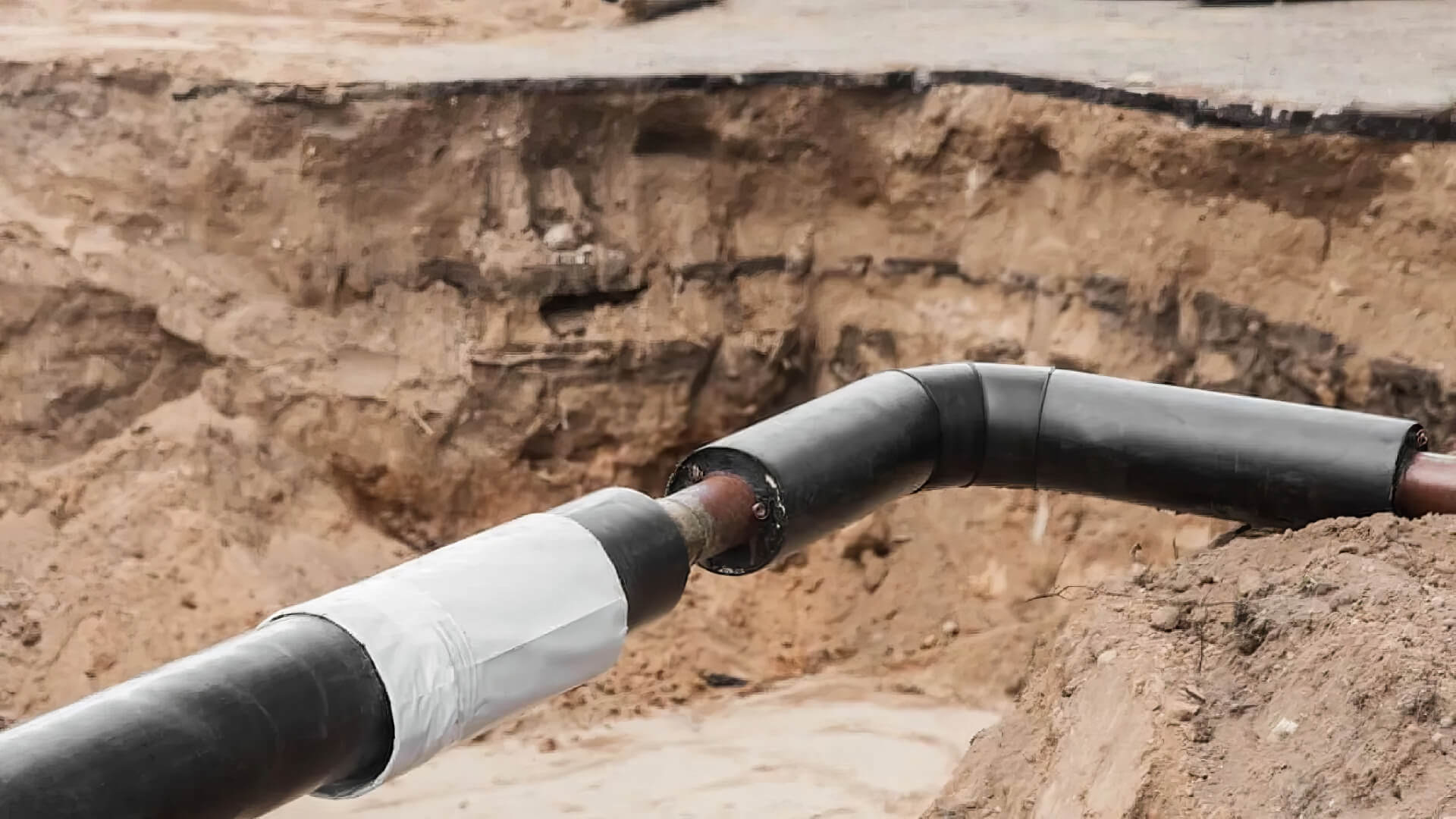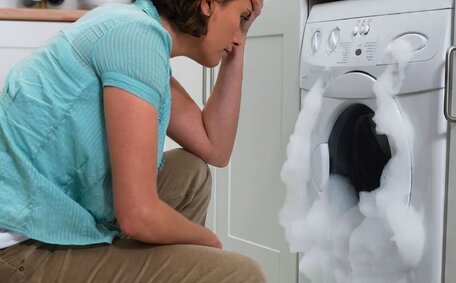
What’s involved in upgrading your gas meter?
Upgrading your gas meter is a simple process completed by qualified technicians. It involves disconnecting your gas supply for 15 minutes to swap the meter. Contact us today for a quote.
Read MoreThe unpleasant rotten egg or sulphur smell coming from your hot water is most often caused by sulphur bacteria. These harmless bacteria live in your hot water tank and release hydrogen sulphide gas, which is what creates that characteristic rotten egg odour. Another common culprit is a chemical reaction between high levels of magnesium in your water supply and the magnesium anode rod inside your hot water heater. In Australia, sulphur compounds and around 50 other chemicals are added during water treatment before the water reaches your home. The sulphur smell in hot water is the very same problem as a rotten egg smell. To get rid of the odour, you’ll need to address the underlying cause, whether it’s sulphur bacteria, your home’s water chemistry, or the condition of your hot water system.
While the smell is unappealing, it is not dangerous.
Sulphur bacteria are often the main culprit behind a rotten egg smell in your hot water.
These bacteria naturally occur in small amounts in ground and surface water sources. As water passes through sediment, the bacteria can enter the water supply. These bacteria naturally occur in small amounts in ground and surface water sources.
Inside your hot water tank, the warm, oxygen-free environment allows sulphur bacteria populations to thrive. As the bacteria digest minerals and organic matter, they produce hydrogen sulphide gas as a byproduct. This gas escapes into the air whenever you turn on a hot water tap, producing the characteristic rotten egg odour.
Sulphur bacteria are able to proliferate because of the tank’s design. Traditional hot water heaters have an anode rod, often made of magnesium. Sulphur bacteria are able to proliferate because of the tank’s design. Traditional hot water heaters have an anode rod, often made of magnesium. Furthermore, water heaters are meant to minimise heat loss, creating an ideal cosy habitat.
Bits of corroded metal and minerals accumulate at the bottom of the tank, providing food for sulphur bacteria.
To eliminate sulphur bacteria and the rotten egg smell, you’ll need to make the tank environment less hospitable. This may involve replacing the anode rod, raising the temperature, flushing the water heater regularly or using a disinfectant. With the right preventive steps, you can stop sulphur bacteria from stinking up your hot water.
sulphur bacteria, a chemical reaction involving magnesium can also cause a rotten egg smell from your hot water system. Many water supplies naturally contain high levels of magnesium. Magnesium is added during water treatment, and groundwater may pick it up by flowing through magnesium-rich rock and soil.
Inside your hot water heater is a magnesium alloy anode rod, which protects the tank from corrosion. Inside your hot water heater is a magnesium alloy anode rod, which protects the tank from corrosion. The reaction happens more quickly if the water also contains high levels of sulphate.
This gas has that characteristic rotten egg odour.
A similar reaction takes place with aluminium and zinc anode rods, but to a much lesser degree. So if your water has high magnesium and sulphates, a magnesium rod is more likely to produce a sulphur smell over time.
To prevent this issue, you may need to replace the magnesium anode rod with one made of aluminium or zinc. Using a powered anode rod that runs on electricity can also help by preventing reactions with the water. Retesting your water after these changes will tell you if the smell has gone away.
There are several effective methods to eliminate the rotten egg odour from your hot water system. The smell may seem worst first thing in the morning or after returning from holidays when water has been sitting. Switching to a Corro-Protec powered anode rod can help reduce hot water reactions. However, adding a water softening system could make the issue worse by removing minerals.
Flushing the water heater tank will remove built-up sediment and stale water where sulphur bacteria thrive. Connect a hose to the tank’s drain valve and route it to a nearby drain. Open the valve to flush out a few gallons, then close the valve and refill the tank.
Turn off power to the unit, shut off the cold water intake valve and open a hot water tap.
Replacing a magnesium anode rod with an aluminium or zinc version stops the metal-water reaction. Use pipe tape on the threads and install a new anode rod.
Shut off power and water supply, then unscrew the old rod. Restore power and water and retest the hot water.
Adding chlorine bleach disinfects the tank and kills odour-causing bacteria. Turn off the power and water, then drain several gallons from the tank. Mix 1 cup of bleach with 1 gallon of water and pour it in the tank. Run each hot tap until you smell chlorine. Let the solution sit overnight before flushing the tank.
Restore water and power.
Heating water to above 140°F kills bacteria. Adjust the thermostat to around 150°F.
This added heat reduces bacterial growth while still preventing scalding. This added heat reduces bacterial growth while still preventing scalding.
With persistence, you can troubleshoot the specific cause and remedy the unpleasant rotten egg smell coming from your hot water system.
Replacing the existing anode rod in your hot water system with an aluminium or zinc anode rod can help eliminate the rotten egg smell. The magnesium in a standard anode rod can react with compounds in the water, producing hydrogen sulphide gas. An aluminium or zinc rod does not cause this reaction.
You may be able to replace the anode rod yourself, depending on the water heater design and location. Start by shutting off power to the water heater and turning off the water supply. Use a socket wrench to unscrew the old anode rod and pull it out. Clean the threads in the tank opening and apply pipe thread sealant to the threads of the new rod.
Drain some water from the tank to reduce pressure. Screw in the aluminium or zinc anode rod until it is hand tight. Drain some water from the tank to reduce pressure. Drain some water from the tank to reduce pressure.
Installing a powered anode rod is another option. Installing a powered anode rod is another option.
This electrically-powered device prevents corrosion without reacting with the water. A licenced electrician will need to install a powered anode rod.
Once the new anode rod is in place, run the hot water to clear any residual rotten egg smell. Test the hot water several days later to confirm the unpleasant odour is gone.
p>p>p>
p>p>p>p>p>p>p>
p>Treating sulphur bacteria inside your hot water tank is one of the most effective ways to eliminate that rotten egg odour for good. There are a couple methods to kill off the bacteria:
Use a disinfectant cleanerp>p>p>
If you’ve tried the various troubleshooting tips to eliminate a rotten egg smell from your hot water with no success, it may be time to call in a professional plumber. Mortdale Plumbing has over 15 years of experience providing expert plumbing services in the Mortdale area and surrounding suburbs of Sydney.
Mortdale Plumbing specialises in a wide range of residential and commercial plumbing needs, including:
Their team of qualified, licenced plumbers can inspect your entire hot water system, diagnose what’s causing the unpleasant sulphur smell, and recommend the best solution. This may involve replacing parts, a thorough flush and sanitisation, or complete water heater replacement if it’s beyond repair.
For difficult repairs or full water heater replacement, hiring a professional ensures the job is done right the first time. Their technicians have the skills, expertise and equipment to efficiently resolve any rotten egg water issues. They can also properly dispose of old parts and handle any permits required.
Don’t continue putting up with foul-smelling hot water - contact the friendly team at Mortdale Plumbing on 1300 349 338 to schedule an appointment. Or email [email protected] and describe your situation for tailored advice and quotes.
p>p>p>p>p>
Upgrading your gas meter is a simple process completed by qualified technicians. It involves disconnecting your gas supply for 15 minutes to swap the meter. Contact us today for a quote.
Read MoreWe use only the most durable, long-lasting and eco-friendly pipe relining materials such as PVC and epoxy resin to repair pipes without excavation.
Read MoreChemical drain cleaners contain toxic chemicals like sulfuric acid and sodium hydroxide that can damage pipes, disrupt septic systems, and harm humans if inhaled or make contact with skin. Avoid chemical drain cleaners and call Mortdale Plumbing at [phone] for safe, eco-friendly drain cleaning.
Read MoreMortdale, 2223 NSW
We will call back as soon as possible.




